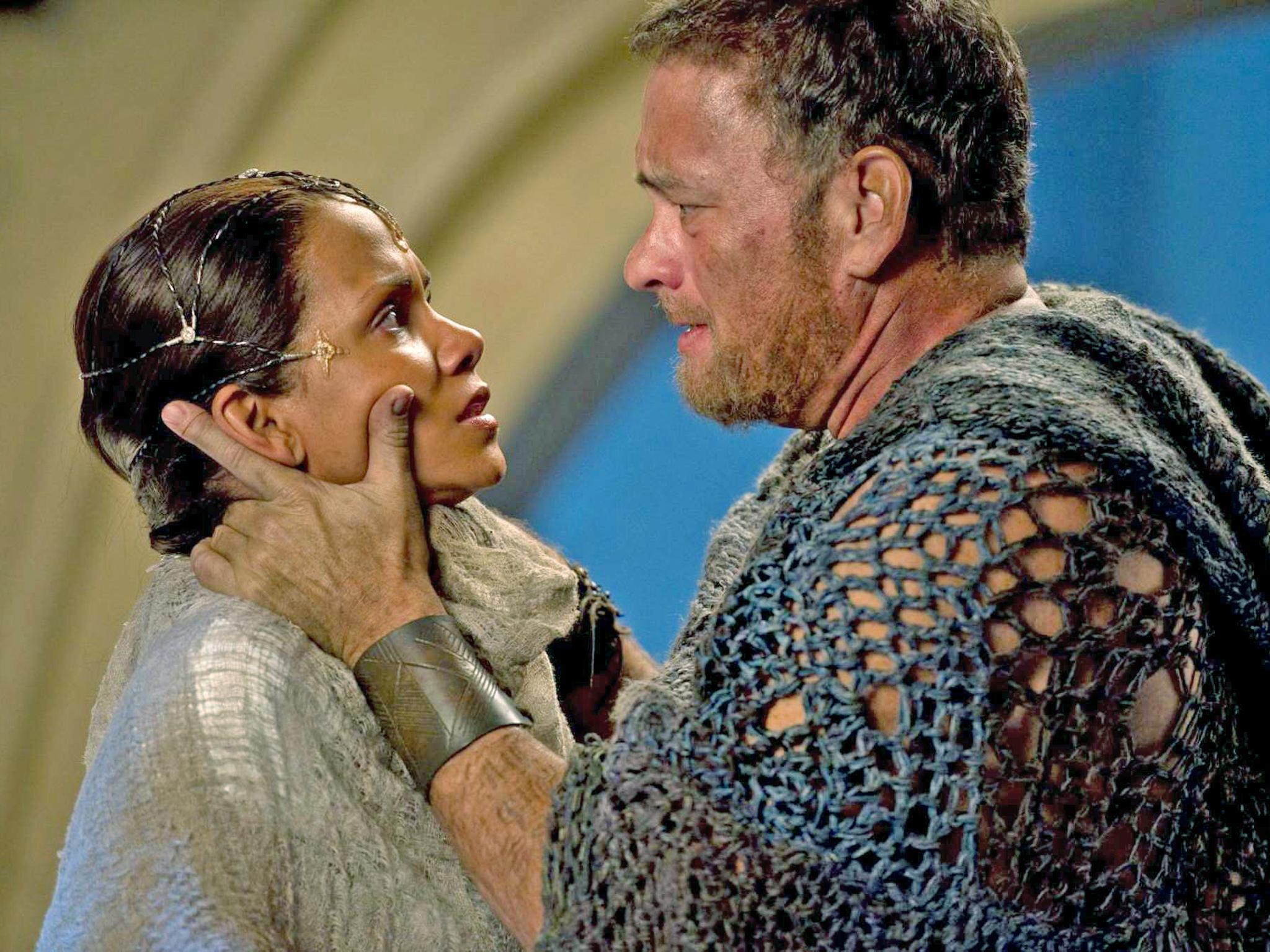Film review: Time-travellers reach for the sky in Cloud Atlas
(15)

Your support helps us to tell the story
From reproductive rights to climate change to Big Tech, The Independent is on the ground when the story is developing. Whether it's investigating the financials of Elon Musk's pro-Trump PAC or producing our latest documentary, 'The A Word', which shines a light on the American women fighting for reproductive rights, we know how important it is to parse out the facts from the messaging.
At such a critical moment in US history, we need reporters on the ground. Your donation allows us to keep sending journalists to speak to both sides of the story.
The Independent is trusted by Americans across the entire political spectrum. And unlike many other quality news outlets, we choose not to lock Americans out of our reporting and analysis with paywalls. We believe quality journalism should be available to everyone, paid for by those who can afford it.
Your support makes all the difference.If ambition and daring were the only markers of film-making genius, then Cloud Atlas would be a movie for the ages, a dazzling, unrepeatable masterpiece. It isn't one, not even close, which should remind us that great movies also require things like discipline, clarity, focus, and – what might be one of ambition's counterweights – a sense of humility.
Not having read David Mitchell's much-praised 2004 novel on which it's based, I don't have a particular axe to grind regarding its faithfulness as an adaptation, but that the trio of directors – Andy and Lana Wachowski, and Tom Tykwer – have taken it on at all surely deserves a tip of the hat.
Lasting just short of three hours, Cloud Atlas contains multitudes. It mingles and matches six different plots in a bamboozling mosaic that hopscotches through eras, continents, even planets. Chronologically, its starting point is a slavery melodrama in the South Pacific of 1849; then the story of a musical prodigy traduced in 1930s England; a nuclear conspiracy thriller in 1973 San Francisco; a black comedy of incarceration in 2012; a sci-fi yarn of clones and revolution in 2144; and, finally, a raggedy space epic set in the 24th century.
The film loops the stories one inside another, challenging us to spot the echoes, resonances and crosscurrents that animate them. Forster's famous dictum "Only connect" could have been its epigraph. That connection, it eventually becomes clear, is a moral one: we owe to each other the responsibility of freedom, in whatever universe we happen to be living.
To help the audience along (it's still Hollywood) the film-makers have decided to use well-known faces in multiple roles, sometimes so heavily disguised that you may struggle to recognise them. The Victorian section, for instance, starts out as a false-nose contest between Tom Hanks, Hugh Grant, Hugo Weaving and Susan Sarandon before settling on Jim Sturgess's idealistic attorney, who en route to the US finds his humanity tested when a stowaway slave (David Gyasi) throws himself on his mercy. This one is the Wachowski siblings' best effort.
Tykwer's trio are to my mind the highlights. Ben Whishaw plays Cambridge musician Robert Frobisher, who in 1936 becomes embroiled in the life of a manipulative composer (Jim Broadbent). Frobisher's symphony – The Cloud Atlas Sextet – is the movie's musical Holy Grail. His lover Sixsmith (James D'Arcy) reappears in the 1973 plot as an elderly scientist who connects with Halle Berry's investigative reporter. Broadbent then returns as a feckless publisher who has been falsely imprisoned at a draconian nursing home, offering a late flurry of farce and the spectacle of Hugo Weaving as a gorgon nurse. Cross-dressing recurs throughout the movie, blurring genders and perhaps slyly echoing Lana (formerly Larry) Wachowski's own journey from man to woman.
The first hour and a half of this is completely absorbing, by the way, if only because you're trying to piece it all together. Once past the two-hour mark you realise that the set-ups are so much more interesting than the resolutions. This is very noticeable in the two futuristic, Wachowski-directed episodes. The tale of a young replicant (Doona Bae) on the run with a rebel leader (Sturgess) in 2144 Seoul has its moments, several reminiscent of Blade Runner.
The distant space saga, however, in which Hanks and Halle Berry speak a made-up pidgin argot, is pure baloney, and the make-up is off the scale. Check Hugh Grant as a raping-and-pillaging warrior in Orc facepaint, and you instantly understand why he limits his repertoire to stuttering English gents. His role could have been cut without much trouble. I would also have ditched Hanks's impersonation of a Celtic literary thug (who can they mean?) and a line of Frobisher's about "what happened between Vyvyan and I" – not the grammar of an educated man of the 1930s.
One could carry on carping, but in the end Cloud Atlas survives its lapses and misjudgments. It's tried something new, and that's good enough.
Join our commenting forum
Join thought-provoking conversations, follow other Independent readers and see their replies
Comments